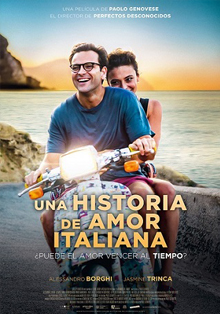Pedro González
Journalist
He was the first communist leader with a human face, or at least that was the feeling I had when I saw him in Moscow and after following him and covering his visit to Madrid and Barcelona. The language of the Cold War had presented the Union of Soviet Socialist Republics (USSR) as the implacable superpower that aspired to establish communism throughout the world, and its leaders as dour apparatchiks, ready to prevent any breath of the air of freedom in the West from entering their space of sovereignty.
Mikhail Sergeyevich Gorbachev broke this mould, not because he was suddenly fascinated by what his spies told him and what he himself saw of the eternal great enemy, which was not only the United States but also the NATO family of countries. His contemporary in the US Presidency, Ronald Reagan, had decided to deal a final blow to the confrontation by escalating the arms race to a level that the USSR was unable to keep up with. So much so that his predecessor Yuri Andropov, the man who knew everything about everyone as head of the KGB, had left him a devastating report, according to which the USSR urgently needed to completely reform its consumer goods industry, sacrificed for the sake of armaments, so that the growing demands of its citizens were always met with shortages, rationing or the simple non-existence of products equivalent to those that the Russians knew were in common use in the West’s enemy territory.
Be that as it may, Gorbachev took the final step by implementing perestroika, the set of reformist measures, spearheaded by opening up to the Western bloc, while instituting economic liberalisation and increasing information transparency. For Soviet citizens, who were accustomed to harshness, secrecy, threats and punishment, with or without reason, glasnost, i.e. transparency, set tongues wagging and made the many cases of corruption taking place within the communist regime known to astonished citizens, while protest demonstrations multiplied, initially more numerous and noisy among those in favour of keeping things as they were, and later surpassed in number and intensity by those who demanded an acceleration of the reforms. It was the latter who would eventually prevail after Gorbachev, probably frightened by the dynamics of events, felt the need to slow down the process. He did not succeed and it was Boris Yeltsin who finally forced him to resign under the banner of an independent and sovereign Russia.
Nobody is a prophet in his own land, and Gorbachev is a good example to prove it. Today, barely 7% of Russians say they have respect for him. By contrast, in the West he is seen as the man who enabled Europe to become the conglomerate it is today, from a simple Economic Community to the European Union, with that great enlargement that incorporated practically all the former satellite countries of the USSR, starting with the three Baltic states in the first round.
Gorbachev is thus the man who brought about the reunification of Germany, the man who decided to end the ruinous invasion of Afghanistan, the signatory of the first Start nuclear arms limitation treaty and, in short, the man who put an end to the Cold War. The White House had gone so far as to proclaim Ronald Reagan the victor of that conflict, which led Gorbachev to react by calling him “arrogant” and claiming his active role in preventing nuclear confrontation and bloodshed, a claim that was successful in that he was awarded the Nobel Peace Prize in 1990.
In Russia, he is the man who brought about the collapse of the USSR, the collapse of the Soviet empire, the collapse of communism, and the architect of the hardships that befell the citizens, who saw their savings evaporate virtually overnight as insecurity took over the streets thanks to skyrocketing crime. And nowadays, he is also seen as responsible for the break-up of Ukraine, which has become the first piece in Vladimir Putin’s project to rebuild the Russian empire.
Time will no doubt refine these antagonistic views of a man who in any case was a determining factor in the course of the history of Russia, the European Union and, by extension, the entire planet.
© Atalayar / All rights reserved





